Ireland manager Martin O’Neil remained downbeat in the immediate aftermath of seeing his side exit Euro 2016 with a 2-1 defeat to France in Lyon.
O’Neill’s team had led 1-0 at half-time and the manager really believed that his side could have won the game and progressed to the quarter-finals of the competition.
And there is no doubt, Ireland could have won the game.
A second-minute penalty allowed Robbie Brady to fire the Irishmen into an early lead and O’Neill’s side maintained that advantage going into the break at half-time.
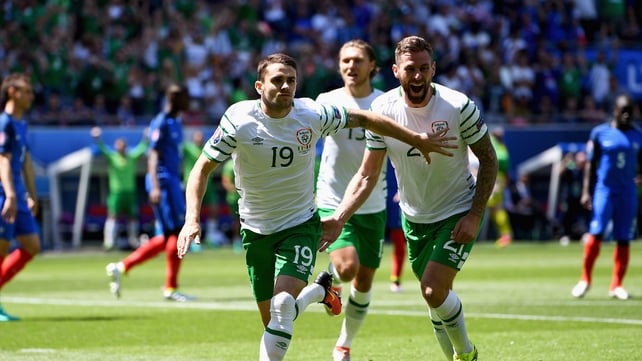
But it was a long first half. The clock appeared to be going backwards with the Irish team defending as if their lives depended on it for the remaining 43 minutes of the opening period. And those additional four minutes.
Darren Randolph was having one of those days where he looked like nothing would get past him, saving free-kicks from specialist Dimitri Payet, headers from Antoine Griezmann, before two exceptional stops, one in either half, as he kept out a top-corner bound Paul Pogba free-kick and a Blaise Matuidi thunderbolt.
But if the French attack was relentless in the first half, Didier Deschamps' side stepped up another gear after the break as holding midfielder N’Golo Kante was replaced by the attack-minded Kingsley Coman.
But for Ireland, it left some gaps and when O’Neill’s men did manager to break out of the French shackles, they created one great chance to double their advantage.
It was a counter attack of the highest quality as Ireland brought the ball out of defence, switched the play, helped by a perfectly timed flick by Daryl Murphy, before James McClean was sent down the left.
The ball across the face of the goal was delivered to the right area, and at great pace.
Shane Long was arriving at the back post as a simple tap-in looked likely, but Hugo Lloris got down smartly to push the ball clear.
That was Ireland’s chance to win the game. A two-goal cushion would have been a completely different proposition, which may have resulted in the French panicking and losing their composure.
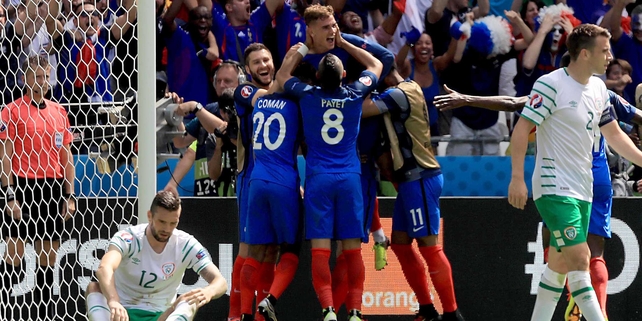
But as long as the scoreline remained 1-0, France trusted that their quality would get them back on terms and allow them to push on for victory.
The French coach took a gamble by taking off his defensive midfielder at half-time, using Coman to get more width in the team, while, he explained after the game, he wanted to get Griezmann closer to Olivier Giroud in attack.
Ireland were playing a dangerous game, whether by choice or by necessity, of defending too deep, and with the quality that France possess in Pogba, Payet and Griezmann, they must have sensed it was only a matter of time before they got their opening goal.
Giroud complemented that pace and precision perfectly as he brought the right amount of physical presence to the French attack, which created space for the others to utilise.
Similarly, Coman was a real live-wire and, while never really threatening, he dragged the Irish defence out of position, again allowing others more time and space on the ball.
Griezmann decided to save his best football of the tournament, and possibly of his entire season, for this last-16 encounter as he proved a constant threat to the Ireland rearguard.
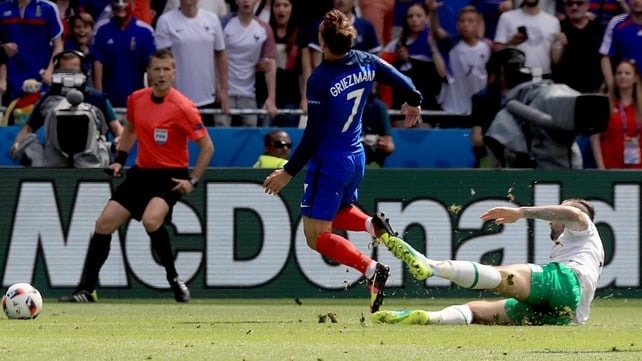
Two goals in three minutes killed Ireland and the Atletico Madrid man deserved to play the role of executioner as his powerful header levelled matters, before his second, courtesy of a fine flick by Giroud, which was a composed finish and proved the match-winner.
Griezmann’s hat-trick was prevented by Shane Duffy’s late lunge and while the red card stopped France from opening up a decisive 3-1 lead, it also marked the end of the Irish challenge.
Down to ten men, Ireland suddenly appeared extremely fatigued and were never in with a chance of winning the fixture from that position.
O’Neill had preached about the importance of energy levels throughout this tournament but now Ireland had over 25 minutes to attempt to save the game by scoring at least one goal to take it to extra time.
But those vital energy reserves had run out and the three-day turnaround took its toll on Ireland’s midfield.
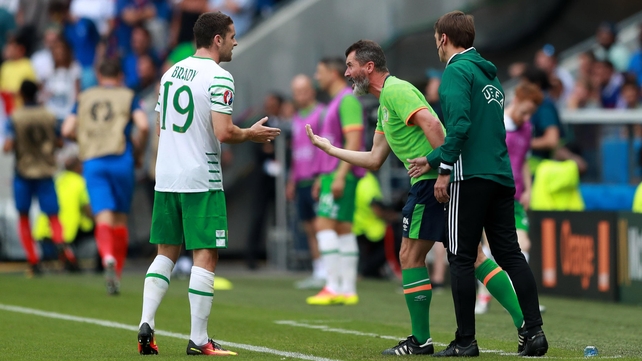
Naming the same starting XI after the Italy victory was a noble call by the manager, as every player deserved to go again against France.
But the midfield of Brady, Hendrick and McCarthy had played in every game and all three looked to have run out of energy early in the second half.
It became evident in Brady’s usually assured first touch, which started to look jaded, Hendrick’s decision-making was affected, while McCarthy had put in such a big shift in the first half, and having arrived at the tournament carrying an injury, it was inevitable that he would fade.
Perhaps, with the benefit of hindsight, O’Neill might have picked a different team or formation but with such little time to plan for the game, the manager probably hoped momentum would take them through the full 90 minutes.
The French coach was asked about his constant changing of his team already at the tournament. Deschamps replied that it was a necessity and that all the teams were doing it, except Croatia, and they have been eliminated.
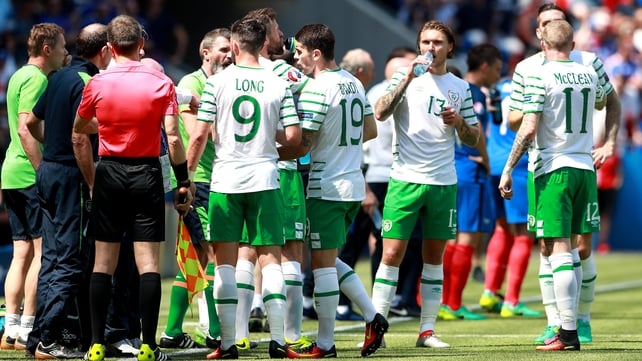
“We knew that they’d come on to us,” said O’Neill. “But we were very comfortable in the second half and still thought we’d win the game.”
Of course, O’Neill’s comments are valid and you would not expect anything else from a coach who had just watched his side give everything they had for the Ireland cause.
But while Ireland could have won the game, there is no doubt that the deserving team have progressed to the quarter-finals.
The Ireland manager will, however, reflect over the next few days and look back on this fantastic voyage, not just at this tournament, but back to the start of the qualifying campaign.
And he should be very happy and proud of his achievements and the job that he has done in a short space of time.
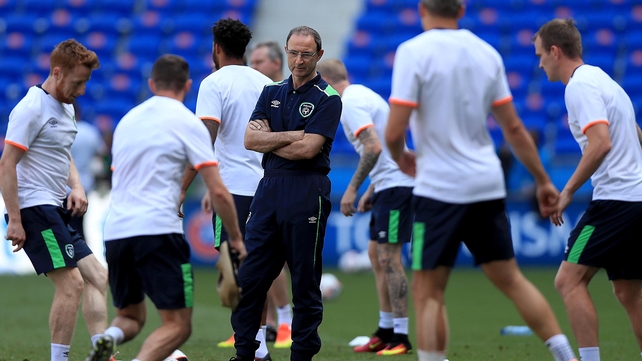
O’Neill has rekindled the famous Irish team spirit, which now burns brighter than it has in over a decade. And the manager also instilled self belief in the Ireland team, gradually getting improved performances as his team continue to evolve, which was evident still throughout this tournament.
And most importantly, O’Neill has improved his players and brought them onto the international stage, which was highlighted by some fine individual performances, most notably from Robbie Brady and Jeff Hendrick.
So let’s hope that this journey is only really beginning and all of these things can continue within the squad ahead of the upcoming World Cup qualifying campaign.
The performances at the European championships – even the poor one against Belgium – will stand to this Ireland team over the next couple of years and O’Neill’s side will fear no team in their attempts to qualify for the 2018 World Cup.
Nor should they.







